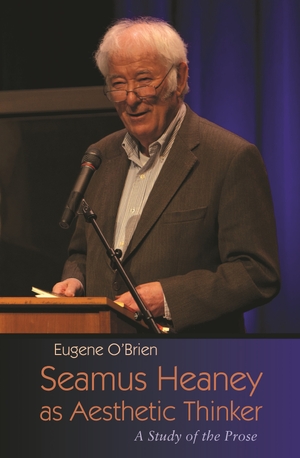"A serious contribution to our understanding of how the acoustics of poetry needs to be incorporated into our reading of Northern Irish poetry. . . . Well-researched and thoughtfully argued."—Richard Rankin Russell, professor of English, Baylor University
"Obert's readings are elegant, formally sophisticated, and persuasive, with insights drawn from affect theory, cognitive neuroscience, and a deep familiarity with both classic prosody and musical structures."—Breac: A Digital Journal of Irish Studies
"Postcolonial Overtures: The Politics of Sound in Contemporary Northern Irish Poetry is a perceptive and innovative look at the work of Ciaran Carson, Paul Muldoon, Derek Mahon, and others."—The Year's Work in English Studies
"Postcolonial Overturesoffers a striking new perspective on postcolonial poetics, and Obert’s graceful, confident prose makes it a pleasure to read. She writes with the consummate skill of a critic who knows how to listen to language—and to the world around us."—New Hibernia Review
"In Postcolonial Overtures, Julia Obert charts a new and exciting trajectory for thinking about contemporary Northern Irish poetry. In deft, lively readings of Carson, Mahon, and Muldoon, Obert shows how their poetry is catalyzed by the matter and problem of sound—the sounds that poems can make, the sounds represented within them, and the sounds of the world that surround them. . . . beautifully written."—Eric Falci, University of California, Berkeley
Description
Postcolonial Overtures explores the importance of sound in contemporary Northern Irish writing, focusing on the work of three canonical poets: Ciaran Carson, Derek Mahon, and Paul Muldoon. Obert argues that these poets respond to what Edward Said calls “geographical violence”—to the stratification of the North’s visual spaces; to the sectarian symbols splashed across Belfast and beyond—by turning from the eye to the ear, tentatively remapping place in acoustic space. Carson, for instance, casts Troubles-era Belfast as a “demolition city,” its landmarks “swallowed in the maw of time and trouble,” and tries to compensate for this inhospitality by reimagining landscape as soundscape, an immersive auditory field. This strategy suggests sound’s political and affective potential: music, accent, and even comfortingly familiar white noise can help subjects, otherwise unmoored, feel at home. Drawing on a diverse range of fields, Obert devotes two chapters to the examination of each poet’s work, allowing room for both in-depth formalist readings and contextual and theoretical understandings of the poems and their reverberating effects.
About the Author
Julia C. Obert is assistant professor and assistant chair in the Department of English at the University of Wyoming.
October 2015



